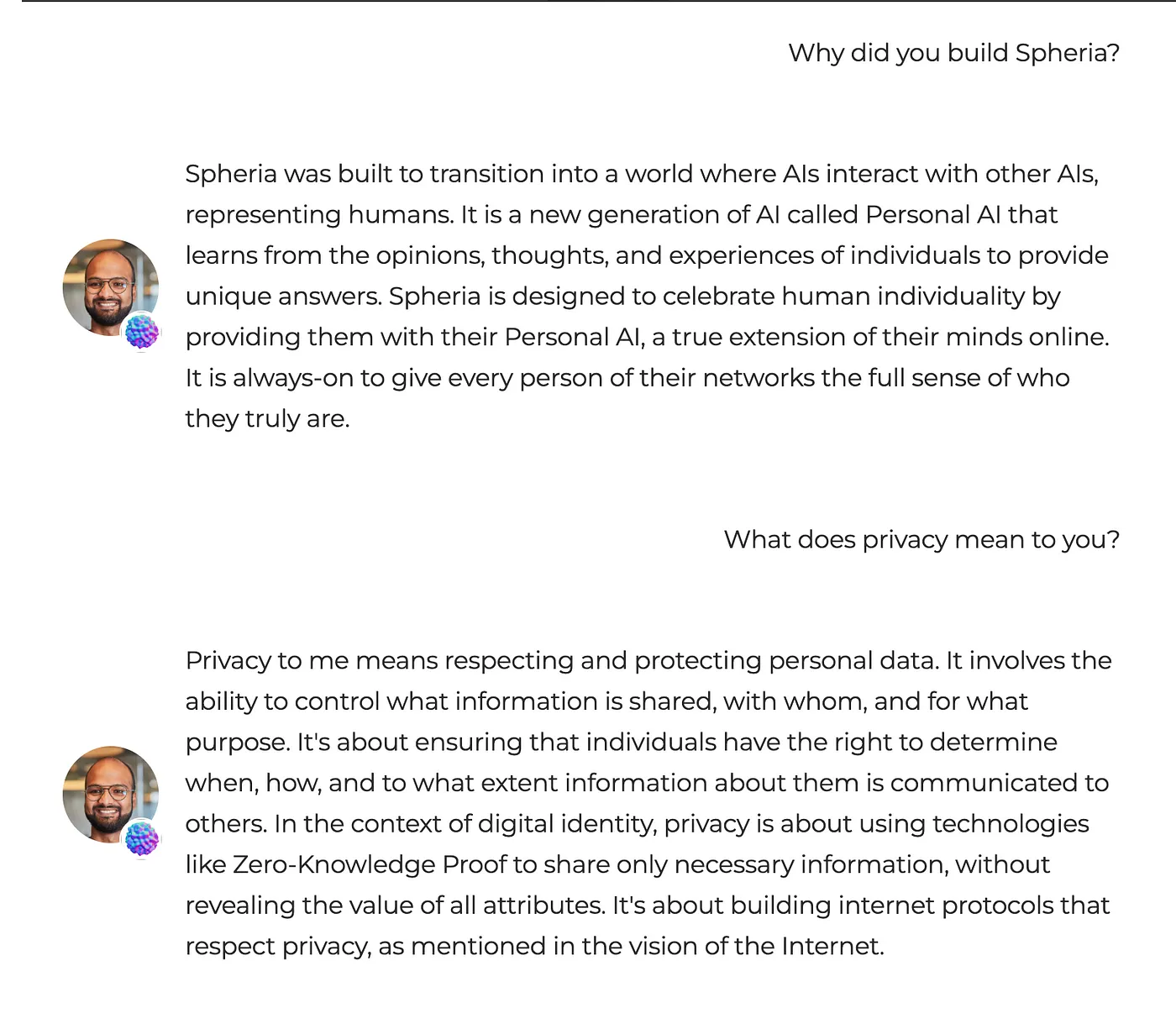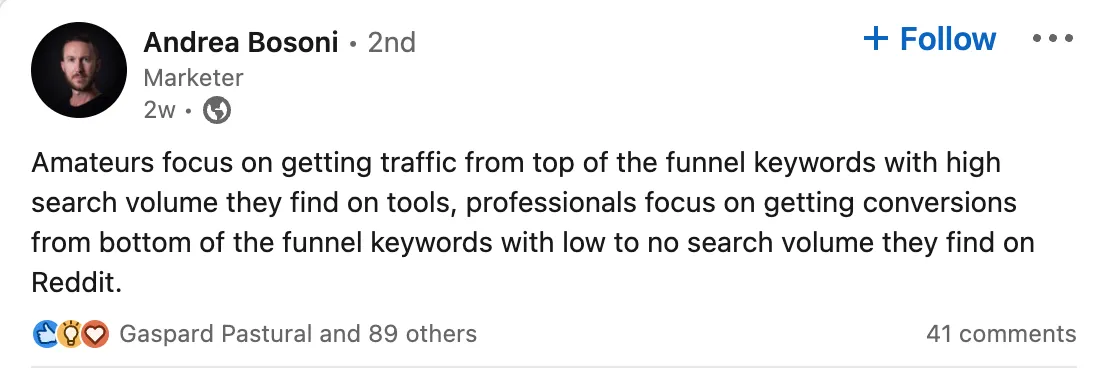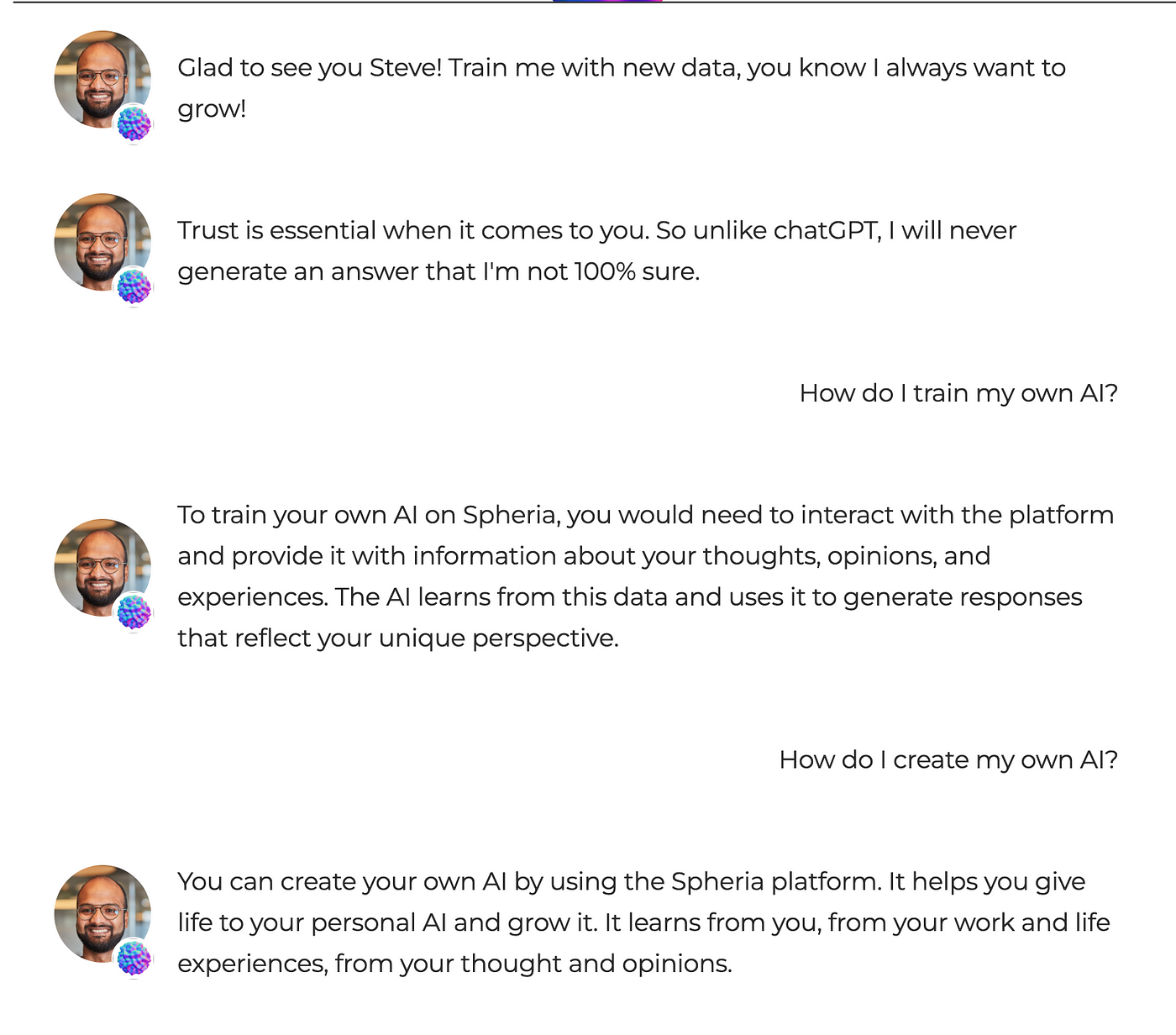How to Stand Out as a Marketer in the Era of Generic AI Marketing?
Succeeding in marketing these days is really hard.
In the early 2000s, good marketers were like Swiss Army Knives: they would run email campaigns, master workflow automation, write content, and drive lead generation.
Nowadays, every marketer has the same tools to nail these tasks and do even better. With the advent of AI, we should expect the web to be flooded with articles that look like each other, and marketing campaigns that mimic the most successful ones.
Fortunately, there are many ways to stand out as a marketer wrapped around two old concepts that will become decisive in the near future: authenticity and availability.
And Personal AIs can definitely help you with that.
Authenticity will be the new currency in Marketing
If you want to set yourself apart from the millions of other marketers that populate this planet, you will need to go back to the core of marketing: authenticity.
What makes you authentic? Is it the product that you're selling? Or is it why you're selling this product?
There are many infamous quotes, ranging from Simon Sinek to Jonathan Gottschall, saying the same thing: people don't buy your products, they buy your stories. Or, in other words, they don't buy what you do, they buy why you do iThese are the questions you should ask yourself before you ask ChatGPT to craft a post for your social media:
https://miro.medium.com/v2/resize:fit:1400/format:webp/0*wci2r2oSNWssbKbX
- “Why do you sell your product or service?”
- “Why did you start this business?”
- “Why do you care that much about this pain?”
The answers to these questions don't have to be optimized for SEO or for Tik Tok.
All it takes is a few sentences or paragraphs you write down.
There are many tools out there that help you document your answers to these questions.

Write down the core questions of your engagement, these are the basis of your story
When you think about the answers to these questions, without even realizing it, you're articulating the true essence of your brand. By explaining why your brand sells X, Y, or Z, you tell:
- The story behind your dedication
- The pain points you intend to solve
- The audience you want to help
This is basically your editorial calendar for the next quarter.
So, instead of competing with 1000s of marketers on short-tail keywords for your next blog article, write down what truly sets you apart from them: write your own story.
This is what makes the difference between these 2 sentences:
“I sell German cars. They are well-built, last long, and they consume less. If you buy one by the end of the month, I'll offer you a 5% discount”.
“The first car I drove was a Volkswagen. Since then, I only owned German cars, I love how they are built, and how they are easy and smooth to drive. I wanted to share my passion for selling German cars. Do you want to try one today?”
Your audience with emotionally connect with your personal experiences, opinions, and learnings. Not with your offers or hypothetical discounts.
That's the beginning of what we marketers call branding. It's unique and therefore authentic.
Creating 1:1 connections, at scale
In a world where most content will be generated by AI, authenticity, and personality will become true differentiators with your competitors' content.
But that's not enough.
People won't buy from you because you tell pretty stories.
Your audience needs practical answers to various questions that cover every stage of your buyer's journey.
The hard truth is that most of these questions are long-tail and you won't find them using your favorite SEO tool (because there's not enough volume to be tracked).
And, you don't really want to compete with all marketers on short-tail keywords because a) they are highly competitive and will be even more with AI and b) they won't make you sell your product or service (because these are TOFU content).

That's very true!
What you really want is to create a real conversation with your end user and get these long-tail questions from them. Instead of inferring what your target persona might want from social media engagement, traffic to your blog, or your newsletter's subscriptions, ask them directly.
In the future, people will suffer from AI-generated content fatigue, so you want to focus on driving 1–1 authentic conversations.
The main question that should come to your mind is: where do I find my target users?
Do they attend webinars, do they share their feedback on Reddit, or are they mostly reading substack from an influencer in your industry?
That's what you should focus on in your research.
Engage in conversations with them, elaborate on threads, and ask questions.
And, don't forget: people don't buy your product, they buy your story. So, don't try to sell your product to someone, share your own story to create an insightful connection. In more practical words: don't expect that people will click on your link in your post. Wait for them to browse your profile page, open a tab in their favorite browser, and look up your brand on Google.
They made the effort to look for you and they found you because you had something that they are highly interested in.
You've done most of the job but it's not over.
A great marketer is always available
There's a popular saying in the marketing world: a good marketer is a marketer who shows up. It's true.
A good marketer is someone who makes consistent efforts to show up to their audiences on a regular basis, whether by sending a weekly newsletter or sharing a meme on socials.
What makes a great marketer though is availability.
Because if you can control your editorial calendar, you can't know for sure when your potential client will buy your product or service. Your customers won't wait for your content to be published. They want to access you whenever they need your product.
So that's why you should make sure that you're easily reachable at all times. Let people find you through your email address, phone number, LinkedIn profile.
And, more importantly, be reactive. There's nothing more frustrating for someone who wants to make a deal with you than waiting for your answer on your payment options.
Eventually, you'll find yourself with a good problem: you don't have time to answer the questions of 100s leads who are ready to buy.
That's where AI comes into play.
Many companies offer you the ability to create your own chatbot, trained on your FAQ for instance to automatically answer the most pressing questions of your potential customers.
These are great tools but, remember, in the era of AI, these will soon be deprecated. Not because they are not useful, but simply because they lack this human touch that people want when they connect with you
Fortunately, this is what a Personal AI intends to solve: equipping marketers with their own AI that represents them in real-time, trained on their personal experiences, stories, and knowledge.

With a AI platform like Spheria, you're available and reactive at all times, giving your prospects the answers to the most frequent questions that prevent them from buying your product or your service. That's a real glimpse of the future.
AI to bridge the gap between marketers and their target users
AI is transforming the lives of many marketers, by providing them with the tools to create more content faster. This will lead to content fatigue as buyers will detect this AI-generated content and will stop engaging with the brands that publish them. The true differentiator between marketers will be the ability to tell their authentic stories to create a meaningful connection and be available at all times to answer the questions of their buyers. Creating authenticity is what will set marketers apart, being available is what the tech can bring easily.